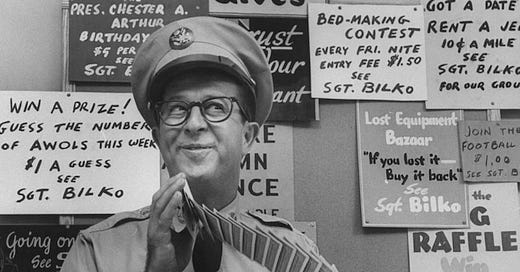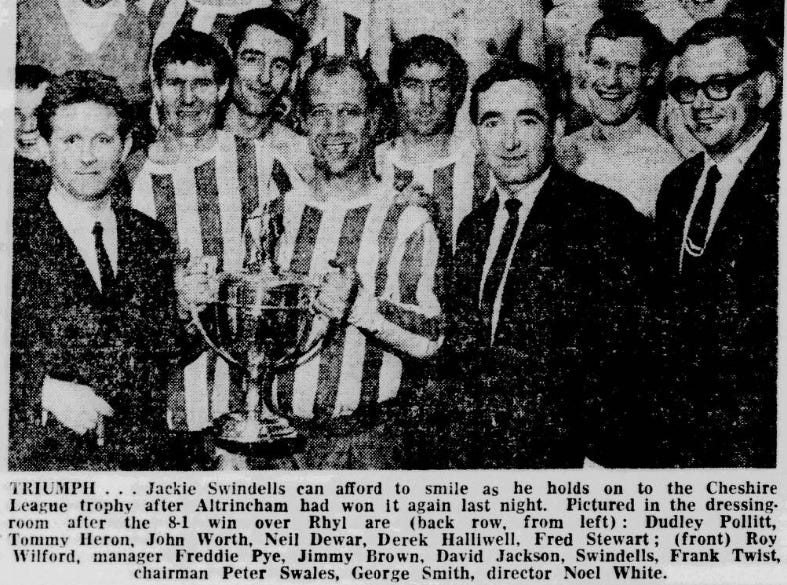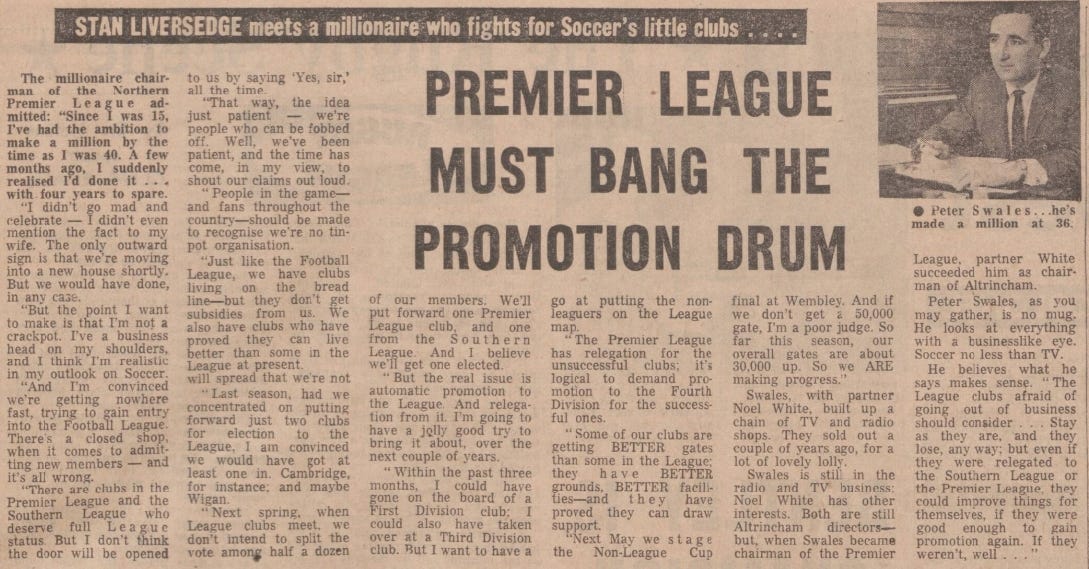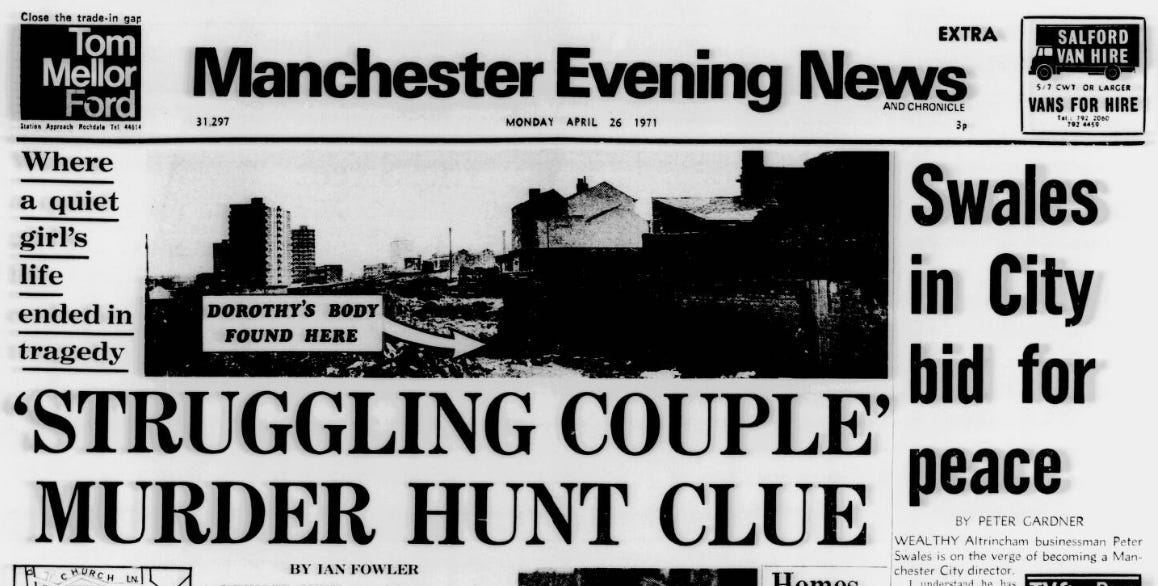
At the start of 1971, as City became embroiled in an increasingly bitter takeover battle, a fresh face in the world of football was attracting headlines for all the right reasons.
Peter Swales, the 39-year-old chairman of the Northern Premier League, was attempting to create a new national league that would offer automatic promotion to the Football League. The Northern Premier League was considered a ‘personal triumph’ for Swales, who had been the main architect of its creation in 1968. According to the Liverpool Echo,
‘If anyone is likely to succeed it will, I feel convinced, be soccer-ambitious, dynamic Peter J Swales.’
The son of a fishmonger from Ardwick, Swales’ business career began during his two years’ National Service in the early 1950s. Swales once listed Phil Silvers as his favourite comedian, and there certainly seems to be a Bilko-esque quality to his two years in the Royal Army Service Corps. As well as organising dances and coach trips for fellow servicemen, Swales also made a 100% profit hiring radios for ten shillings a week, then charging the 20 men in each billet a shilling a head.
In 1954 Swales went into business with Noel White, a former colleague from the accountancy firm where Swales had worked after leaving school. Each put £50 into the business—called White & Swales— which operated out of a 12ft x 10ft shop in Cross Street, Altrincham that they rented for £6 a week. According to a 1958 profile, they initially sold ‘records, sheet music, radiograms (a record player combined with a radio), record players, musical instruments, toys, and accessories’.
‘Soon they were able to expand the premises—by moving into the cellar. Then they extended further into another cellar. Listening boxes were installed where customers could hear records before buying.’
Swales later claimed that the business, which also organised “Bop Hops” at secondary school fetes and managed pop groups, ‘barely survived’ in the early years. But a new mass medium was about to transform their fortunes.
The TV boom was by now in full swing in the UK, fuelled by rising prosperity and the creation of ITV in 1955. In 1960 White & Swales, which by now had opened a branch in Stockport, began renting televisions. The timing could not have been better. By 1961, 12.3 million people in Britain had a television, up from 5.7 million in 1956.
Football was central to ITV’s strategy from the beginning, with the company broadcasting live midweek games from the newly-formed European Cup. Their only rival, the BBC, immediately responded with a Saturday night League highlights show, Sports Special (replaced by Match of the Day in 1964), before being trumped in 1960 by ITV’s £150,000 deal with the Football League to screen 26 live matches over the 1960-61 season.
Swales claimed that both he and White were “mad about football” (Swales was described as ‘an enthusiastic amateur player’ in his teenage days), and in 1961 they each bought £2,000 of shares in Altrincham FC, enough for Swales to become chairman and White a director. It was reported that the club, which finished second bottom of Cheshire League in the 1960-61 season, ‘were so broke their phones had just been cut off.’
In 1963 they were joined on the board by Stockport-born scrap metal merchant Freddie Pye, who also became the club’s part-time manager. By the 1965-66 season, Altrincham had become the most talked-about non-League side in the country, winning the Cheshire League with a 35-game winning streak that only ended in the FA Cup third round away to Wolves. They retained the title in 1967 and the following year, with attendances averaging around 5,000, became founder members of Northern Premier League.
Swales became the League’s first chairman, passing the chairmanship of Altrincham to White. According to the Liverpool Echo,
‘He modestly discounts it, but the fact is that had it not been for his enthusiasm, drive and energy the Northern Premier League would never have got off the ground. It was a creative idea, largely, his own, that required the mental and physical energy of Peter J Swales to see it through.’
In 1968 Swales and White each received £125,000 (worth around £3million in today’s money) after selling 50% of their company—which by then had 14 branches—to Thorn Electrical. In July 1969 Swales swapped his remaining 25% stake for 53,334 Thorn shares valued at £120,001. In November 1969, Swales told the Liverpool Echo:
“Since I was 15 I had the ambition to make a million by the time I was 40. A few months ago I suddenly realised I’d done it… with four years to spare.”
Financially secure and free from his main business commitments, Swales now focused on the football world. But this time the ‘millionaire who fights for soccer’s little clubs’ was more interested in the top of the football pyramid.
In April 1971 the Manchester Evening News reported that Swales was ‘on the verge of becoming a Manchester City director.’
The paper also revealed that Swales had attended recent City board meetings along with Manchester businessman Robert Harris. Joe Smith and Simon Cussons, two members of the takeover group, had also been present. According to reporter Peter Gardner,
‘My information is that Mr Swales is anxious to bring both sides together in an attempt to thrash out a peace formula.’
A man with “enthusiasm, drive and energy”, who was fighting for the good of the game. A skilled negotiator with an unbroken record of success in business and in football.
What club wouldn’t want Peter J Swales on its board?
Part 5








